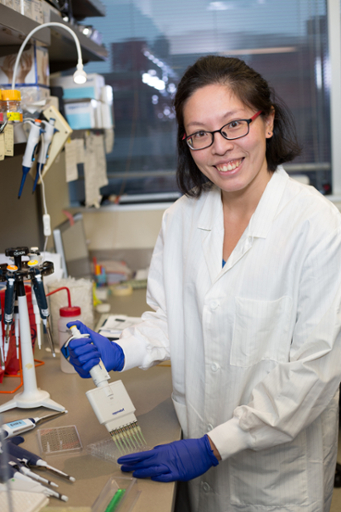
Dr. Yi-Chun Chen (YCC) BSc, MSc, PhD
Assistant Professor Anatomy, Physiology & Pharmacology- Address
- 3D01.16 HLTH, Lab: 2D40 HLTH
Research Area(s)
- Endocrinology (obesity and metabolism)
- Pancreatic islet cell biology
- Peptide hormone biosynthesis, processing, secretion, and clearance
About
Assistant Professor, Anatomy, Physiology & Pharmacology, University of Saskatchewan
Visiting Scholar, Helmholtz Institute of Diabetes Research, Munich, Germany
Postdoctoral Fellow, Department of Surgery, University of British Columbia, Canada
Ph.D., Cellular and Integrative Physiology, Indiana University School of Medicine, USA
M.Sc., Cell Biology, University of Connecticut, USA
BSc, Medical Laboratory Science, Taipei Medical University, Taiwan
We're Recruiting!
Please visit our website for information on available positions.
Research Interests
Insulin biosynthesis and processing
The development of hyperglycemia observed in diabetes is intimately tied to defects in islet β cells’ ability to produce or secrete sufficient insulin. Our lab is interested in understanding how insulin biosynthesis and post-translational processing are regulated under conditions of acute or chronic nutrient excess.
Peptide hormone processing and autoimmune diabetes
Defective post-translational processing of insulin or other peptide hormones could lead to compensatory production of their precursor peptides. These peptides, which are not normally recognized by the immune system, may trigger autoimmunity and accelerate the demise of β cells in type 1 diabetes. Our lab uses animal models, histological techniques, and immunological experiments to study the causes and consequences of defective peptide hormone processing in type 1 diabetes.
Islet amyloid polypeptide clearance
Islet amyloid polypeptide (IAPP) is the second most abundant peptide hormone produced in β cells. Human IAPP contains an amyloidogenic sequence and forms amyloid fibrils that are found in the pancreas of patients with type 2 diabetes. Islet amyloid deposition is associated with β cell death and islet inflammation. We are interested in investigating the intra- and extracellular mechanisms of IAPP clearance.
Peer Reviewed Publications
See the full list of our peer-reviewed publications here.
